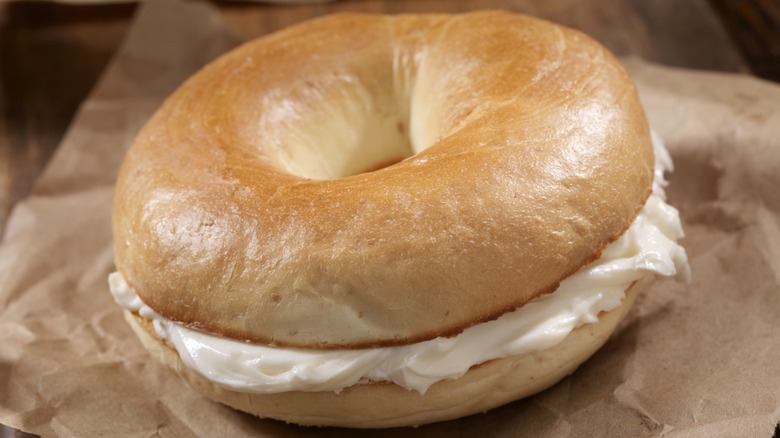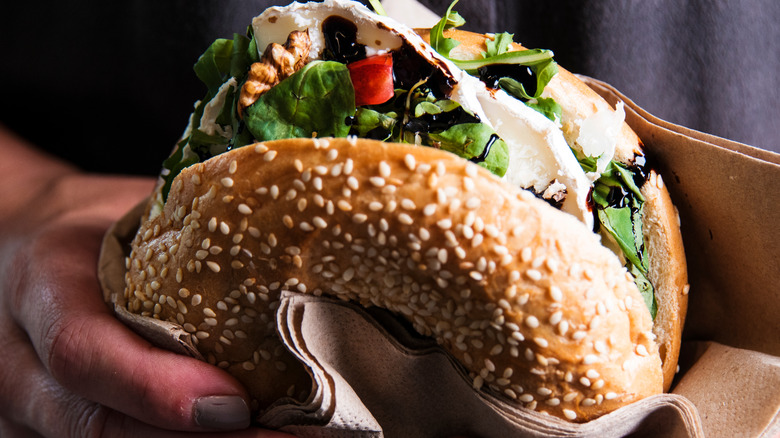You Probably Didn't Know You Were Paying A Bagel Tax In NYC
Grabbing a rush-hour bagel and extra-strong coffee is an American tradition. It's a simple pleasure, one that helps us to get to grips with the early morning hustle and bustle in a simultaneously reassuring and confidence-boosting way.
However, it turns out that the seemingly innocent bagels of New York are afflicted by a controversy: tax. That's right, the universal nemesis of humanity means that New Yorkers have to endure a very specific 8.875% tax attack every time they buy a bagel with any toppings on, even just butter. Although the rule purports to focus on sandwiches, it also affects the likes of hamburgers, hot dogs, and even burritos.
But why was such an unusual and wallet-damaging rule created in the first place? We've researched the subtle tax law to give you all the answers — and some cunning methods to avoid paying the charge altogether.
New York's bagel tax was meant to be temporary
It might surprise you that New York's bagel tax finds its roots all the way back in 1934, when the city introduced a 2% retail sales tax in order to help pay for the costs of unemployment benefits. It was originally expected that the tax would be a temporary measure, perhaps lasting only a year, but instead grew in 1965 to specifically include food prepared in restaurants. Over the following years, the definition of prepared foods expanded to cover a vast range of sandwiches, including bagels.
Clearly, a near-9% hike on bagels with toppings is going to take a bite out of your budget, but there are ways to avoid the charge without becoming the next Al Capone. Buying ingredients separately is the obvious solution — bread, butter, and sandwich spreads are all exempt from New York's retail taxes.
Taking things to the next level, a New York bagel company discovered that selling bagels with fillings stuffed inside the actual dough (such as cream cheese hidden in the bagel itself, so it doesn't need to be sliced) is a completely lawful way to bypass the sandwich tax — for the moment, anyway.

